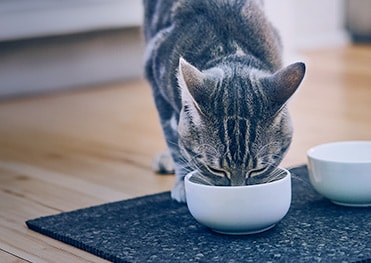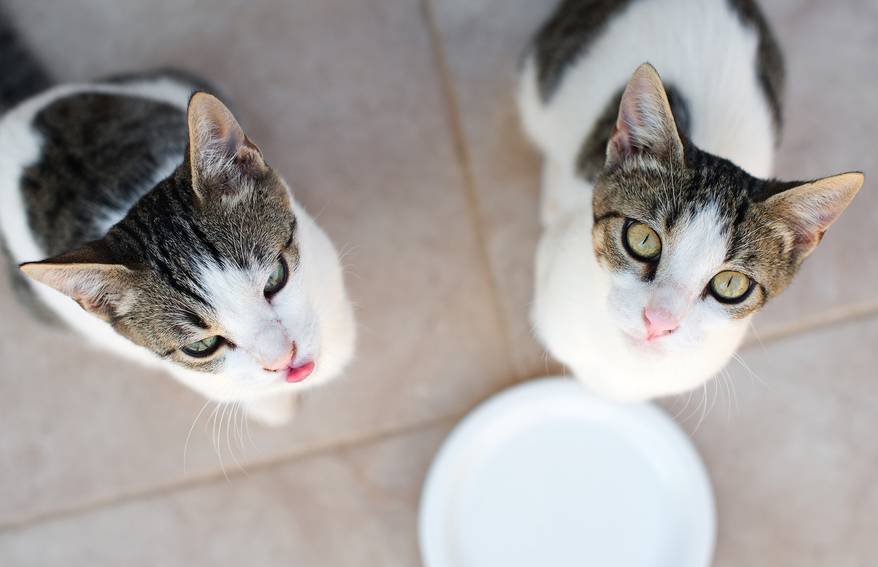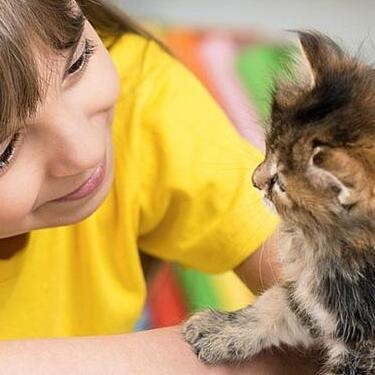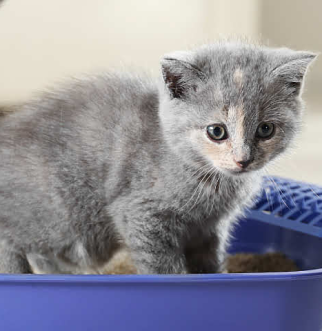
-
Find the right food for your pet
Take this quiz to see which food may be the best for your furry friend.
Find the right food for your pet
Take this quiz to see which food may be the best for your furry friend.
Featured products
 Adult Healthy Cuisine Roasted Chicken, Carrots & Spinach Stew Dog Food
Adult Healthy Cuisine Roasted Chicken, Carrots & Spinach Stew Dog FoodDelicious roasted chicken paired with tender vegetables in a succulent stew
Shop Now Adult 7+ Perfect Digestion Chicken, Whole Oats & Brown Rice Recipe Dog Food
Adult 7+ Perfect Digestion Chicken, Whole Oats & Brown Rice Recipe Dog FoodScience Diet's breakthrough nutrition supports ultimate digestive well-being & healthy microbiome for dogs age 7+
Shop Now Small & Mini Savory Stew with Chicken & Vegetables Dog Food
Small & Mini Savory Stew with Chicken & Vegetables Dog FoodA delicious complement to the nutrition of Science Diet Small & Mini 7+ dog food
Shop NowFeatured products
 Adult 7+ Senior Vitality Chicken & Vegetable Stew Cat Food
Adult 7+ Senior Vitality Chicken & Vegetable Stew Cat FoodImproves Everyday Ability to Get Up & Go
Shop Now Adult 7+ Tender Tuna Dinner Cat Food
Adult 7+ Tender Tuna Dinner Cat FoodWith delicious chunks in a decadent gravy
Shop Now Adult Savory Entrée Can Variety Pack Cat Food
Adult Savory Entrée Can Variety Pack Cat FoodPrecisely balanced nutrition with the delicious taste of savory minced chicken to help fuel the energy needs of cats during the prime of their life
Shop Now -
Dog
- Dog Tips & Articles
-
Health Category
- Weight
- Food & Environmental Sensitivities
- Urinary
- Digestive
- Joint
- Kidney
-
Life Stage
- Puppy Nutrition
- Adult Nutrition
- Senior Nutrition
Cat
- Cat Tips & Articles
-
Health Category
- Weight
- Skin & Food Sensitivities
- Urinary
- Digestive
- Kidney
-
Life Stage
- Kitten Nutrition
- Adult Nutrition
Featured articles
 Do Dogs and Cats have Belly Buttons?
Do Dogs and Cats have Belly Buttons?Learn whether cats & dogs have belly buttons like humans, what the function is, and if there are any health concerns associated with it.
Read More Why Are Dogs and Cats So Cute?
Why Are Dogs and Cats So Cute?If waggy puppy dog tails and furry kitten yawns make you swoon, you're not alone. Why are cats so cute? And, dogs too! Let's find out!
Read More Does My Pet Hate Me?
Does My Pet Hate Me?Learn tips for bonding with your pet if you've ever thought, 'My dog doesn't like me, or 'Why do I have a standoffish cat?'
Read More -


Visit any grocery store aisle and you are certain to find more and more shoppers scanning labels to make sure their food is "free" of one thing or another: gluten free, fat free, sugar free… the list grows longer each day. Now, these preferences have extended beyond the dinner table and into the food bowl, as some pet parents strive to make similar food choices for their beloved four-legged family members.
It’s no wonder that the pet food market has reacted in kind, with an array of grain-free cat food options appearing within the recent years. But is grain-free food for cats the right option for your favorite kitty? Contrary to what can be found on the internet (which is anything), grains can actually be good for your cat. Here are answers to some of the most common questions about grain-free cat food — and whether you should consider for your own pet.
What Is grain-free cat food?
Grain-free cat food is just what its name describes — a cat food made free of grains. Common grains found in cat food include wheat, corn, oats, barley and rice.

Most cats don't require grain-free food and cats with diagnosed grain allergies are unusual. In a study published in Veterinary Dermatology, corn was found to be one of the least likely sources of food allergy in a cat. Of the 56 cats in the study with food allergies, corn was responsible for four cases of allergy issues. Forty-five cats, meanwhile, suffered from allergies associated with eating beef, dairy and/or fish. So how can you know if your cat has a food allergy? Some possible signs of a food allergy include:
- Itchiness
- Excessive grooming
- Excessive hair loss
- Bald patches
- Inflamed skin
- Sores and scabs
- "Hot spots"
Cats can have allergic reactions to grooming products, food and environmental irritants, such as pollen or flea bites which are more common than food allergies. Feline acne, mites, lice, and bacteria and fungus infections of the skin all can lead to similar signs as food allergies in your kitty. You can narrow down what type of allergy your cat has by having your vet do a thorough examination and if food is suspected, your vet may recommend an elimination trial, the gold standard for diagnosing a food allergy, that can help you determine what the cause of your cat's discomfort is. If there is ever a question, your vet should be your number one source for discovering if any allergies do exist.



Tasty Tips
Does grain free also mean gluten free and low carb?
More than 3 million Americans suffer from celiac disease, a painful condition that can be managed by following a gluten-free diet. But the good news is there is no scientific evidence that the same condition affects cats. So, avoiding gluten is not necessary for cats.
What many pet parents forget to consider is that to replace grains, grain-free food often uses other carbohydrate ingredients such as potatoes, sweet potatoes, tapioca, lentils and peas. In fact, some grain-free pet foods contain carbohydrate levels similar to or even higher than cat food containing grains — but carbs don’t make dogs and cats fat. A sedentary lifestyle, neutering, over-feeding, feeding table scraps, consuming too much fat and calories are risk factors for obesity rather than carbohydrates. Carbohydrates from whole grains help provide your kitty with complete and balanced nutrition — the key to good health.
Are grain-free cat foods high in protein?
Protein is especially important in cat food because, unlike many other animals, protein is a cat's primary energy source. What many people don't realize (57 percent of cat parents, according to a PetMD survey) is that while cats do require a part of their protein to come from animals, their systems are also very good at digesting and absorbing nutrients from high-quality, plant-based ingredients. Plant ingredients can be an excellent source of essential nutrients, proteins, fat and carbohydrates. Providing adequate carbohydrate calories spares body proteins, like muscles, from being broken down to be used for energy.
In fact, a food that relies solely on meat as a protein source can be higher in phosphorus. While phosphorus is an essential nutrient, there is a link between high-phosphorus foods and a progression in cats (and dogs) with preexisting chronic kidney disease. Vegetables and grains are low-phosphorus sources of essential amino acids that cats need, providing your cat with a source of protein she needs to be healthy.
How to find the right food for your cat
Research the different options available for your cat, talk to your veterinarian, then choose a high-quality food that meets all the nutrients your cat requires (and that your cat actually likes to eat). Your diligence will go a long way to ensuring your cat's health now and long into the future.


One of our staff authors prepared this article for you
Related products
Related articles

How do you get a cat to lose weight? Learn all about cat foods for weight loss, including how to choose weight control cat food and exercise tips.

Discover how to train your cat, starting with very basic first steps that both reward good behavior and discourage the bad.

What is the best food for an overweight cat? Learn all about weight control food for cats, including what's in it and how it works.

Cats are naturally very clean and chances are your kitten will already have learned how to use the litter box from her mother before she comes to live with you.

Put your cat on a diet without them knowing
Our low calorie formula helps you control your cat's weight. It's packed with high-quality protein for building lean muscles, and made with purposeful ingredients for a flavorful, nutritious meal. Clinically proven antioxidants, Vitamin C+E, help promote a healthy immune system.
Put your cat on a diet without them knowing
Our low calorie formula helps you control your cat's weight. It's packed with high-quality protein for building lean muscles, and made with purposeful ingredients for a flavorful, nutritious meal. Clinically proven antioxidants, Vitamin C+E, help promote a healthy immune system.

